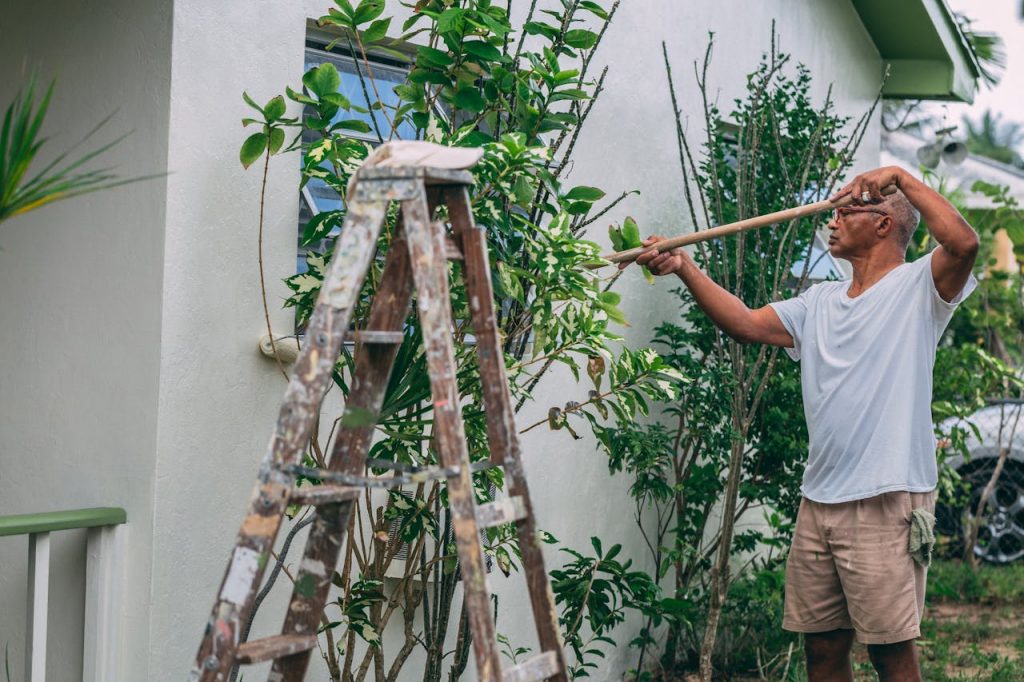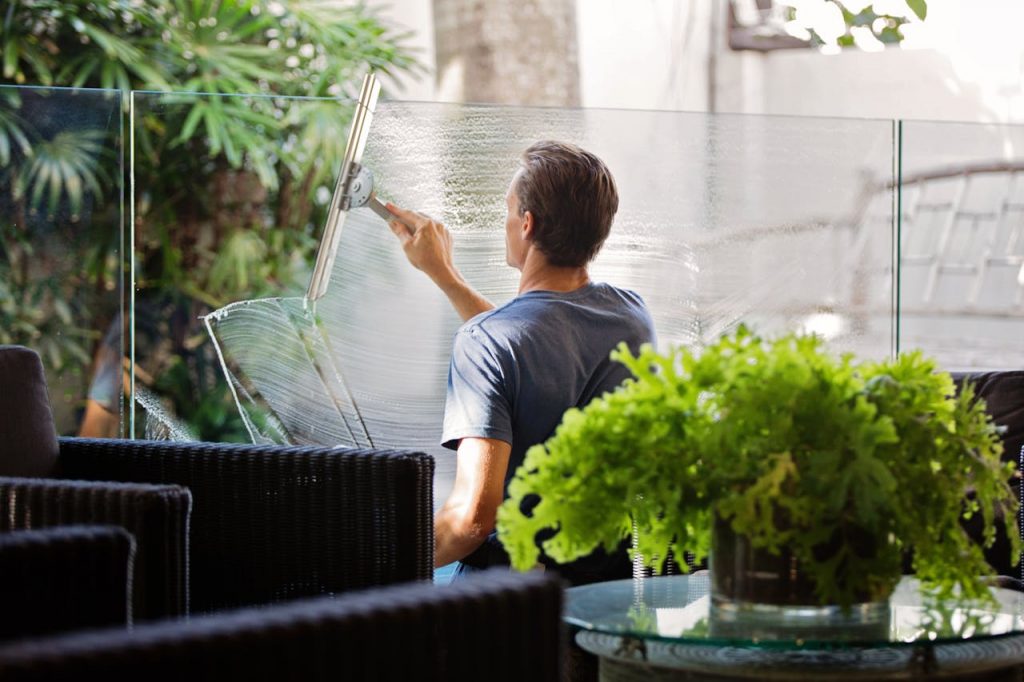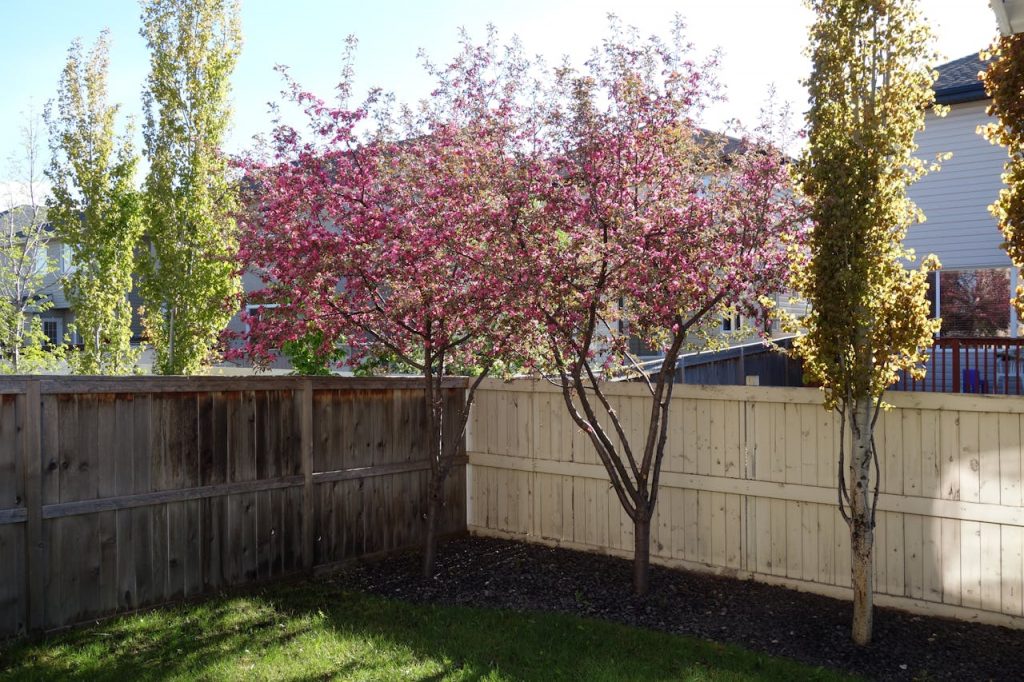I recently wrote about the topic surrounding various timeframes for tenants or landlords giving notice because we receive questions about them every week.
Well, whose responsibility it is to have repairs done, pay for repairs & timeframes to have repairs done is also conversations we have with both tenants & landlords on numerous occasions every week.
Before we dive into looking at whose responsibility it is for various common scenarios I want to make a couple of things abundantly clear;
1. The following is only applicable in NSW. All states in Australia have different rules & regulations.
2. At the end of the day, the landlord is the one who ultimately benefits from ensuring one of their biggest financial investments is well maintained.
For most properties, the better it is maintained over the years, the bigger the impact on future value growth.
I’m picking on landlords a bit here, but when you remove the emotion of spending a few dollars & look at the issue from a logical perspective, you will see that a landlord ignoring or delaying repairs or responsibilities today has the genuine potential to hurt their wallets in the long run.
I of course understand that cashflow is vital in the short term, but long term vision & strategies to increase future wealth are equally important.
Now that I’ve had my whinge, let’s get started.
Unfortunately some of the ‘whose responsibility’ questions in NSW can attract grey area type answers.
Having this ‘grey area’ surrounding these various issues is always a super good idea (insert sarcastic eye roll about NSW laws).
Arguments can be made for minor vs major issues & then depending on the severity the responsibility can lie with different parties.
It’s a really good system!
But just remember that it is the landlord who benefits in the long term.

Gutters
Generally accepted that regular gutter cleaning is the landlords responsibility.
However, if through the actions of the tenant, the gutters or downpipes become damaged or clogged, then it is their responsibility.
Imagine the tennis ball example – if a tenant throws a tennis ball & becomes lodged in the gutters or downpipes & causes issues, then that repair & maintenance is up to the tenant.
Light Bulbs
The replacement of light bulbs is the tenant’s responsibility.
Pest Control
Pest control is a shared responsibility between the tenant & the landlord.
Landlords must ensure that the property is free of pests prior to the tenant moving in.
Tenants are responsible for keeping the property clean & not attracting pests whilst residing at the property.
A landlord may be responsible for pest control if insects & bugs are entering the property due to structural issues such as cracks or gaps in the building.
When a tenant vacates the property, they are responsible for a pest spray for fleas if they have had pets. Well dogs & cats, don’t need a pest flea spray for fish.

Mould
Over the past few years, there has been a significant increase in mould related issues in rental properties.
Mould issues are another task that can be argued from both sides. Mould can occur due to environmental factors but can also be caused by behaviour.
This contradiction is what can cause confusion which in turn can lead to conflict.
In simple terms, if a tenant is not allowing adequate ventilation, then the mould issues fall to their side of the fence.
If the cause of the mould is stemming from leaks, unrepaired issues, structural issues, burst pipes & the like then the landlord is responsible.
Mould & mould prevention is truly a shared responsibility between the tenant and the landlord.
Gardens, Trees, Shrubs
A handy tip when looking at outside jobs in the garden is to ask the question “is it a big or little job?”.
If the work required is light and is considered standard maintenance then the tenant is responsible.
This includes things like mowing, weeding, edging, sweeping and picking up leaves. Tenants are also responsible for watering the lawns & gardens.
If however, the work is more ‘heavy duty’ then it is the landlord’s responsibility. This heavy duty list includes things like tree lopping, pruning shrubs & hedges, maintaining any irrigation systems that are installed and ensuring branches are not interfering with cars or other houses.
Anything that requires specialist equipment such as a chainsaw is the responsibility of the landlord. It is not reasonable to expect a tenant to hire or purchase equipment like this.
Asking a tenant to ensure they have a mower (or hire someone to mow) is considered acceptable.

Pools
The landlord is responsible for ensuring that the pool area is safe & complies with all regulations. They must ensure all of the ‘admin’ of pool ownership is completed including CPR charts, required safety inspection & restoration with the local council as required by law.
Prior to a new tenant moving in, the landlord must ensure that all equipment is in good, safe working order & that the pool itself is clean & running well.
Once the tenant moves into the property, they are responsible for the upkeep & maintenance. This includes any required chemicals or salt.
Investment properties with pools are not overly common (thank goodness). However, at times an agreement may be worked out between the agent, tenant & landlord to have a professional pool company maintain the pool during the tenancy.
A common example of this may be that the tenant pays a slightly higher weekly rent & the landlord covers the cost of a pool professional. Or perhaps the tenant & landlord go halves in this expense.
However, it is important to note, that all of these agreements must be worked out prior to signing the lease & must be included in the lease that the tenant signs.
Something that an agent must be vigilant about on behalf of the landlord is baby pools, blow up pools or above ground pools.
Once the depth of the side of the pool is 30cm (300mm) the same rules & regulations apply as a large in-ground swimming pool.
If a tenant has one of these at the property they must be instructed to remove it immediately.

Air Conditioning & Heating
In NSW, air conditioning & heating repair are now classed as an ‘urgent repair’.
Urgent repairs are things that simply cannot wait to be repaired, they need to be attended to immediately.
Some urgent repair examples are burst water pipes, gas leaks, blocked or overflowing toilets or dangerous electrical issues.
Air conditioning & heating are in the urgent repair category too.
Overall, the landlord is responsible for the air conditioning & heating.
A tenant is responsible for general maintenance such as cleaning air conditioning filters but the bulk of the responsibility is with the landlord.
During the tenancy, if the air conditioning or heating breaks beyond repair & is required to be replaced, it is important to note that it legally must be replaced with a ‘like for like’.
If there is a ducted air conditioning system installed & working when the tenant moves in, should it break, it cannot be replaced with a split system.
Don’t shoot the messenger!
Likewise, if a large split system unit breaks & needs replacing a landlord legally cannot replace an 8 or 9kW unit with a cheaper 2kW unit.
Yes, the smaller system will of course be cheaper, but it’s not legal.
Again… don’t shoot the messenger!
For heating specifically, if a property is leased with working heating such as a gas heater, air conditioning or fireplace then it is the responsibility of the landlord to ensure it works throughout the tenancy.
And if it needs replacing, then it must be replaced as it was there & working when the tenant moved in.
In NSW, a landlord is not responsible for providing heating as is the case in some other states.
However if it is there at the start, then it must be provided throughout the tenancy.

Appliances
The landlord is responsible for the appliances in a rental property. If something breaks they must have it repaired or replaced.
If a tenant has maliciously damaged an appliance & you can prove it, then the tenant would be responsible. However, this is not common.
A landlord needs to note that appliances fall under the urgent repair category.
So whether it is a hot water system, stove, oven or air conditioner, it must be attended to immediately.
Smoke Alarms
A few years ago, new laws were brought in for rental properties in NSW.
Landlords now must obtain an annual smoke alarm inspection & compliance check.
Personally, I think this is a fantastic new requirement. It is not overly expensive (approx $100 per year) & ensures everything is safe & working.
Understandably, smoke alarms & safety are important issues. During their tenancy, a tenant must not interfere with the smoke alarm.
Doing so may be a breach of their lease. A tenant must also report to the agent if there is an issue with the smoke alarm.
General Plumbing
Blocked toilets, water coming up through drains, tree roots obstructing pipes… are all everyday plumbing maintenance issues we deal with.
Essentially the easiest way to think about it is unless there is crystal clear evidence that the tenant has done something to block a toilet, then it is the landlords responsibility to pay for the repairs.
If a tenant’s young child has shoved a toy or tennis ball into the toilet, then the repair expenses will fall to the tenant.
However almost all other things are the landlords responsibility.
As you can see, there are many moving parts when it comes to maintenance.
And hard to believe that there is much more I haven’t covered!
As is always the best idea, reach out for a chat with any questions.



